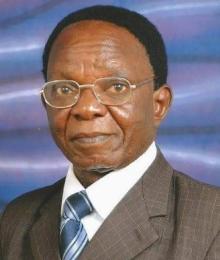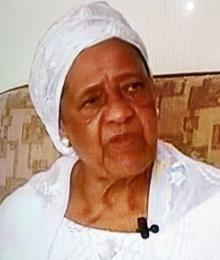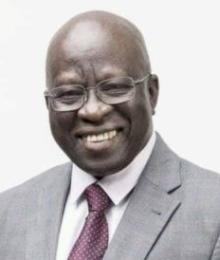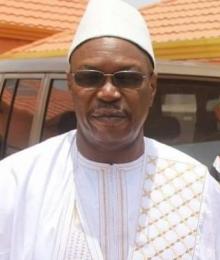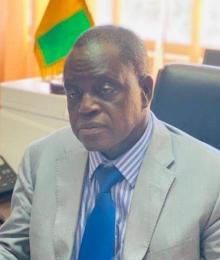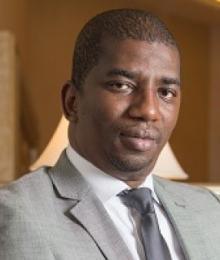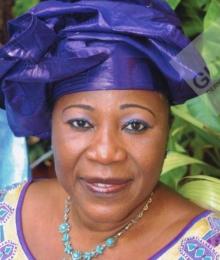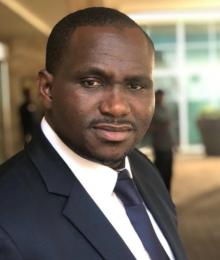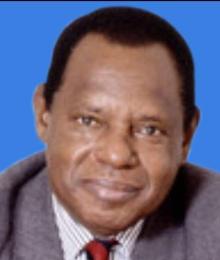
Siradiou Diallo was a Guinean intellectual, journalist and politician who dedicated his life to the peaceful struggle for the establishment of democracy in his country. Born in 1936 in an influential Peule family, he received a solid education before becoming known as editor-in-chief of the prestigious pan-African magazine Jeune Afrique.
Condemned to death by the authoritarian regime of Sékou Touré in the 1970s, he was able to return to the country in 1984 and then engaged in politics. Founder of the Union for Progress and Renewal (UPR), the main opposition party, Diallo presented himself in three controversial presidential elections between 1993 and 2003, denouncing fraud but refusing armed confrontation. Until his death in 2004, this tireless activist for democracy embodied the uncompromising opposition to principles but legalistic in his practice.
Introduction
Siradiou Diallo, an indispensable figure of the Guinean opposition, marked the political history of his country with his tireless struggle for democracy. Born on 25 August 1936 in Labé and died on 14 March 2004 in Paris, this man of great moral integrity dedicated his life to defending the ideals of freedom, justice and progress. A respected journalist who has become a politician, Diallo has been an ally of firm convictions and openness to dialogue, embodying the "quiet force" of the Guinean opposition.
Education
Siradiou Diallo came from an influential family from Fouta Djallon and received a careful education from an early age. After studying Koran at Pita, he continued his studies at the primary school in Labé before participating, in 1951, in the 7th World Jamboree Scout in Austria. This remarkable experience opens her to the outside world.
In 1955, Diallo entered the prestigious École Normale Supérieure William Ponty in Senegal, where he obtained his bachelor's degree in 1958. He then joined the Faculty of Arts and Law of the University of Dakar. A brilliant student, he continued his graduate studies in economics at the universities of Poitiers and Paris.
Professional career
Graduated in 1967, Siradiou Diallo began a promising career in finance at the National Bank of Paris and the French Ministry of Finance. But it is in journalism that he will find his true vocation by joining, since 1970, the team of the famous pan-African magazine Jeune Afrique.
Travelling the continent tirelessly, Diallo climbed the ladder to become editor-in-chief. For 25 years, he has been alongside the greatest African leaders, forging a sharp political analysis and a valuable network of influence. In 1984, after the death of Sékou Touré, he was finally able to return to the country.
Coalition of Guineans Abroad (EGR)
In addition to his journalistic activities, Siradiou Diallo is involved in defending the interests of the Guineans of the diaspora. He organized the Coalition of Guineans of the Outer (EGR), a group gathering exiles traumatized by the abuses of the regime of Sékou Touré. As Secretary-General, Diallo unites these dissident voices and prepares the ground for a democratic transition.
Political struggle
If his journalistic career forces respect, it is in the political arena that Siradiou Diallo will permanently mark the minds. From the 1950s, at the Kankan Normal School, and then in Dakar, he actively militated against the authoritarian regime of Sékou Touré, to the point of being sentenced to death by contumacy in 1970.
Returning to Guinea in 1984, Diallo took action for multi-partyism promoted by the new president, Lansana Conté. In 1991, he joined the Party of Guinea Progress (PGP), of which he became general secretary a few months later. The following year, he founded the Union for Progress and Renewal. (UPR).
1993 presidential election
The growing pressure from the opposition, embodied in particular by Diallo, resulted in the bloodless coup that brought Lansana Conté to power in 1984. As early as 1993, Siradiou Diallo competed in the country's first pluralist presidential election, but wiped out a rough reverse with only 11.86% of the vote. He then denounced massive fraud.
Joined the National Assembly in 1995 as a Member of Parliament, the tireless activist for democracy is preparing to resume the experience in 1998.
1998 presidential election
For this new election, the UPR of Diallo allies with the Union for a New Republic (UNR) of Mamadou Bah, in a coalition supported by the powerful people's community. But this strategy ethnicises the political debate and exacerbates tensions in a country plagued by instability.
Monstrous demonstrations shook Conakry while tens of thousands of Peuls were expelled from the capital by the Conté regime. In this insurgent climate, Siradiou Dialloins his course, rejecting confrontation in favour of dialogue and polls. After a controversial vote, he once again denounced the "election masquerade".
2003 presidential election
In 2002, the UPR remained the only opposition party to participate in the parliamentary elections, winning 20 seats out of 114. With this parliamentary base, Siradiou Diallo resumed his campaign for the 2003 presidential election. But the entire radical opposition, led by the Union of Democratic Forces (UFD), decreed a boycott because there were no guarantees of fairness.
Diallo condemned this "political defeat" and decided, once again, to bow to the verdict of the polls despite doubts over the regularity of the vote. On the eve of this again contested election, Guinea remains plagued by the same evils that gangrene its democratic process.
Death
Tired of a lifetime of unceasing struggles for democracy, Siradiou Diallo died on 14 March 2004 in Paris from kidney failure at the age of 68. His death raises a wave of emotions in Guinea, where homage flows to the man of dialogue, the pacifist in politics who refused to enter the surplus.
His burial on 26 March in Labé, his hometown, gave rise to a historic gathering of activists, religious leaders and anonymous, all orphans of a "spiritual guide" as a relative describes him. The disappearance of this "quiet force" leaves a void in the political landscape of Guinea.
Conclusion
From his careful education to his atypical journey as a journalist converted to politics, to his role as a federator in the Guinea diaspora, Siradiou Diallo embodies an exceptional figure. Determined but open to dialogue, radical in his democratic ideals but moderate in his practice, this tireless activist for change will remain in memory as the spokesperson for an uncompromising opposition on principles but defending the legalist and peaceful path.
His premature death, before he saw democracy triumph in Guinea, did not hurt the struggle of a lifetime. Respected by everyone for his integrity, determination and unwavering attachment to republican values, Siradiou Diallo will remain an icon of the struggle for freedom and a symbol of hope for future generations.
His intellectual and moral legacy remains a source of inspiration for all those who aspire to a better future for Guinea. His career shows that it is possible to combine firmness on principles and openness of mind, democratic conviction and the pursuit of dialogue.
In this, Diallo represents a model of responsible citizenship, committed to change through polls and public debate, rejecting violence and radical positions. While his dream of a Guinea reconciled with itself in democracy and prosperity did not come true in his lifetime, his self-denial and tenacity opened the way.
The posterity will retain from Siradiou Diallo the image of an integral man, devoted body and soul to the democratic cause, an essential craftsman of the transition that his country will inevitably experience. His moral and political legacy will remain a source of inspiration for future generations eager for freedom and justice.













